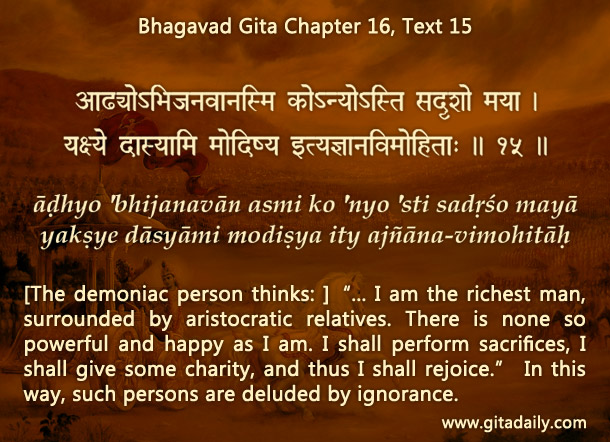How can we know others properly? – When forming relationships with someone, we naturally want to know them properly to decide whether to take that relationship ahead. While assessing people, we often look at two things: their assets and their affiliations.
Assets: We usually look at their various assets such as financial: their clothes, car, residence; educational: degrees and knowledge; and physical: looks and health.
Affiliations: We may not be conscious of how much we look at people’s affiliations. While interacting with them, we often think of their nationality, ethnicity, caste, race, religion, political orientation and other markers of the groups they are connected with.
From afar people’s assets and affiliations strike us, but when we come close to them in daily life, their aspirations and actions will matter much more. The Bhagavad-gita cautions how demonic people may have immense financial assets (16.13) and impressive social circles (16.15). Yet they are insatiably covetous (16.10) and even heartlessly murderous in pursuing their cravings (16.14).
Then what best reveals who someone really is? Their aspirations and their actions.
Aspirations: People are best known through knowing their dreams, their cherished values, their reasons to wake up. They may have insignificant assets and insubstantial affiliations, but if their aspirations are noble, they are probably worth coming close to.
Actions: Many people may have lofty aspirations, but how much are they striving to actualize those aspirations? If they are earnestly endeavoring to live in pursuance of their noble aspirations, they are eminently worth coming close to.
One-sentence summary:
To know people properly, see not just their assets and affiliations, but more so their aspirations and actions.
Think it over:
- Have you assessed people based on their assets and affiliations? Did it ever mislead you?
- Has your first impression of people changed after you came to know their aspirations and actions?
- Consider someone you think you know and contemplate what you know of their aspirations and actions — and how that can improve your understanding of them.
***
16.15: I am the richest man, surrounded by aristocratic relatives. There is none so powerful and happy as I am. I shall perform sacrifices, I shall give some charity, and thus I shall rejoice.” In this way, such persons are deluded by ignorance.


A very good lesson to read
Happy to be of service.